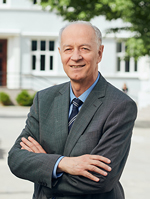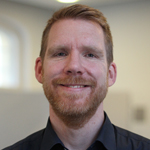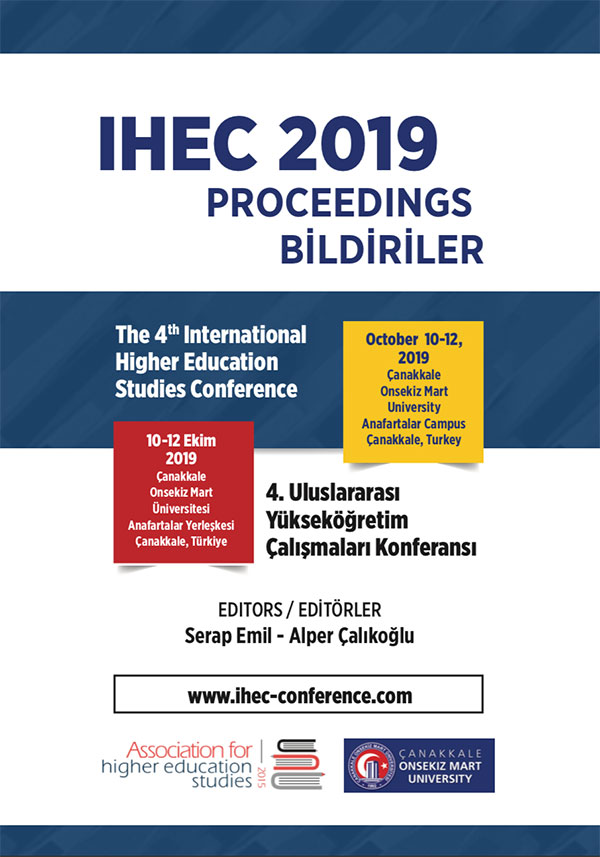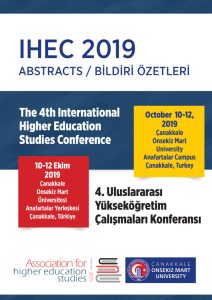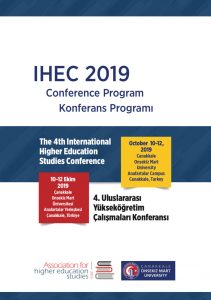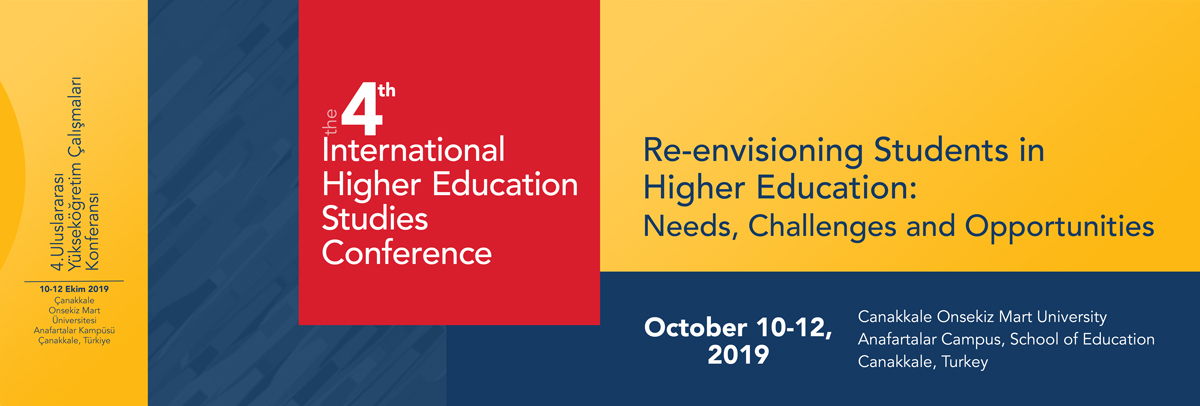Advisory Committee
Prof. Dr. Marilyn J. AMEY, Michigan State University
Prof. Dr. Gülsüm BASKAN, Istanbul Okan University
Prof. Dr. Salih Zeki GENÇ, Canakkale Onsekiz Mart University, Dean of the School of Education
Prof. Dr. Fatma Çiğdem GÜLDÜR, Gazi University
Prof. Dr. Yüksel KAVAK, TED University
Prof. Dr. Reitumetse Obakeng MABOKELA, Illinois University at Urbana-Champaign
Prof. Dr. Dzulkifli Abdul RAZAK,International Islamic University Malaysia
Organizing Committee
Assoc. Prof. Dr. Osman ÇEKİÇ, Canakkale Onsekiz Mart University
Assoc. Prof. Dr. Türker KURT, Gazi University
Assoc. Prof. Dr. Fatma Nevra SEGGIE, Boğaziçi University
Assist. Prof. Dr. Serap EMİL, Middle East Technical University
Assist. Prof. Dr. Barış USLU, Canakkale Onsekiz Mart University
Dr. Alper ÇALIKOĞLU, Association for Higher Education Studies
Res. Assist. Dr. Sezen APAYDIN, Canakkale Onsekiz Mart University
Res. Assist. Dr. Halime ÖZTÜRK ÇALIKOĞLU, Canakkale Onsekiz Mart University
Res. Assist. Şahabettin AKŞAB, Middle East Technical University
Scientific Committee
Prof. Dr. Hasan Hüseyin AKSOY, Ankara University
Prof. Dr. Naciye AKSOY, Gazi University
Prof. Dr. Ahmet AYPAY, Anadolu University
Prof. Dr. Melek ÇAKMAK, Gazi University
Prof. Dr. Temel ÇALIK, Gazi University
Prof. Dr. Burhanettin DONMEZ, İnönü University
Prof. Dr. İbrahim DUYAR, University of Arkansas at Little Rock
Prof. Dr. Mustafa Yunus ERYAMAN, Canakkale Onsekiz Mart University
Prof. Dr. Donald HOSSLER, University of Southern California (Emeritus)
Prof. Dr. Nurdan KALAYCI, Gazi University
Prof. Dr. Kasım KARAKUTUK, Ankara University
Prof. Dr. Muharrem KILIC, Yıldırım Beyazıt University
Prof. Dr. Zeynep KIZILTEPE, Boğaziçi University
Prof. Dr. Yaşar KONDAKCI, Orta Doğu Teknik University
Prof. Dr. Aigerim KOSHERBAYEVA, Abai Kazakh National Pedagogical University
Prof Dr. Servet ÖZDEMİR, Başkent University
Prof. Dr. Kseanela SOTIROFSKI, Aleksandër Moisiu University
Assoc. Prof. Dr. Adnan BOYACI, Anadolu University
Assoc. Prof. Dr. Zafer CELİK, Yıldırım Beyazıt University
Assoc. Prof. Dr. Nihan DEMIRKASIMOGLU, Hacettepe University
Assoc. Prof. Dr. Enes GOK, Karamanoğlu Mehmetbey University
Assoc. Prof. Dr. Sedat GUMUS, Aarhus University
Assoc. Prof. Dr. Bekir GUR, Yıldırım Beyazıt University
Assoc. Prof. Dr. Mehmet Akif HELVACI, Uşak University
Assoc. Prof. Dr. Ali Çağatay KILINC, Karabük University
Assoc. Prof. Dr. Izabella PETRIASHVILI, Tbilisi State University
Assoc. Prof. Dr. Riyad A. SHAHJAHAN, Michigan State University
Assoc. Prof. Dr. Ayhan URAL, Gazi University
Assist. Prof. Dr. Mohammed Zaheer ASGHAR, Helsinki University
Assist. Prof. Dr. Melike Ş. ÇAĞATAY, Canakkale Onsekiz Mart University
Assist. Prof. Dr. Adil ÇORUK, Canakkale Onsekiz Mart University
Assist. Prof. Dr. Burcu ERDEMIR, Çankaya University
Assist. Prof. Dr. Seung-Hwan HAM, Hanyang University
Assist. Prof. Dr. Emine ONEN, Gazi University
Assist. Prof. Dr. Durmuş ÖZBAŞI, Canakkale Onsekiz Mart University
Assist. Prof. Dr. R. Şamil TATIK, Muş Alparslan University
Assist. Prof. Dr. Felix WEISS, Aarhus University
Assist. Prof. Dr. A. Adem YAMAN, Canakkale Onsekiz Mart University
Assist. Prof. Dr. Derya YORGANCIOGLU, Ozyeğin University
Assist. Prof. Dr. Yisu ZHOU, Macau University
Dr. Afet DUNDAR, National Student Clearinghouse Research Center
Dr. Meltem AKBULUT-YILDIRMIS, Munich Technical University
Dr. Tuncer FIDAN, Burdur Mehmet Akif Ersoy University

